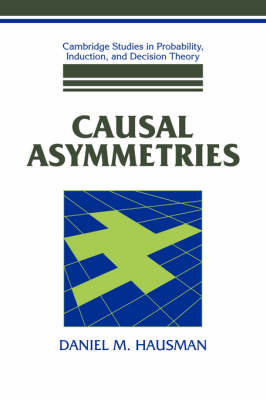Cambridge Studies in Probability, Induction and Decision Theory
1 total work
This book, by one of the pre-eminent philosophers of science writing today, offers the most comprehensive account available of causal asymmetries. Causation is asymmetrical in many different ways. Causes precede effects; explanations cite causes not effects. Agents use causes to manipulate their effects; they don't use effects to manipulate their causes. Effects of a common cause are correlated; causes of a common effect are not. This book explains why a relationship that is asymmetrical in one of these regards is asymmetrical in the others. Hausman discovers surprising hidden connections between theories of causation and traces them all to an asymmetry of independence. This is a major book for philosophers of science that will also prove insightful to economists and statisticians.
